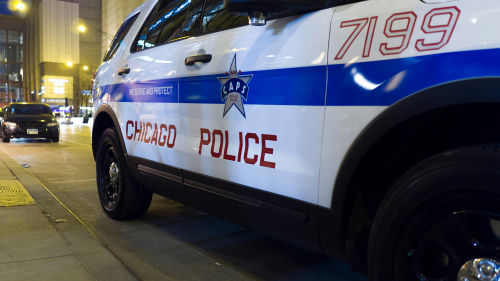A Democratic mayor’s order instructing police to defy federal immigration enforcement sparks a new showdown over constitutional rights, local autonomy, and the future of American sovereignty.
Chicago Mayor’s Defiant Stand Against Federal Immigration Crackdown
In February 2025, Chicago Mayor Brandon Johnson signed a sweeping executive order instructing city police and officials not to cooperate with any federal troops or agents sent to enforce President Trump’s new immigration policies. The order, labeled the Protecting Chicago Initiative, openly rejects federal involvement and calls Trump’s actions “tyranny,” positioning city leadership as defenders of local autonomy and constitutional rights. Mayor Johnson’s move provides a legal and legislative framework for city employees to resist federal directives, fueling a national debate over where the boundaries of federal authority truly lie.
Trump’s administration, meanwhile, has signaled a hardline approach: deploying federal forces to cities with high crime rates and rolling out executive orders to ban policies like no-cash bail. The White House insists these steps are necessary to address what it describes as an “invasion” of illegal aliens, linking the surge in immigration to threats against public safety and national security. Former senior Trump officials helped draft Project 2025, a sweeping plan that would overhaul federal agencies, expand deportation operations, and direct military, federal, and local police to conduct mass arrests and workplace raids. Critics warn that such unprecedented federal action risks undermining civil liberties and due process for millions of Americans.
Federal Overreach or Necessary Enforcement? Competing Visions for America
The Trump administration’s push for aggressive federal intervention has roots in longstanding conservative concerns about border security, fiscal responsibility, and the rule of law. Executive orders now prioritize mass detentions, the use of National Guard troops for immigration enforcement, and penalties for localities that refuse cooperation. Trump’s policies—such as the “One Big Beautiful Bill Act”—strip lawfully present immigrants of access to health insurance and nutrition aid, dramatically expand detention budgets, and allow for indefinite detention of families, including children. These moves, touted by the administration as vital to protect American communities, have drawn fierce opposition from progressive city leaders who argue they violate constitutional protections and erode traditional principles of limited government.
Mayor Johnson’s executive order stands as a direct challenge to these policies, emphasizing the city’s commitment to rights of assembly, protest, and due process. Legal teams and community organizations have mobilized to resist federal intervention, submitting public records requests and organizing “Community Action Days” to educate residents about their rights. The local response, while framed by Democrats as a defense of civil liberties, has been criticized by conservatives as a publicity stunt that leaves law-abiding citizens vulnerable to crime and chaos.
Impacts on Constitutional Rights, Local Governance, and American Values
Short-term consequences of the standoff include heightened legal battles and increased polarization between federal and local authorities. Chicago’s resources are strained by advocacy and legal efforts, while residents face uncertainty about the future of criminal justice reform and immigration enforcement. The Trump administration’s policies set a precedent for federal intervention that could reshape the balance of power in cities nationwide, threatening the principle of local governance enshrined in the Constitution.
Policy analysts and historians warn that aggressive federal tactics risk eroding core American values—individual liberty, family stability, and the right to due process. Former Chicago Police Chief Eugene Roy has criticized progressive policies like no-cash bail for enabling crime and prompting federal intervention, while experts caution that mass detentions and expanded police powers could cause long-term harm to democratic institutions and civil society. The ongoing struggle in Chicago may influence criminal justice reform, immigration policy, and the broader debate over states’ rights for years to come.
Hey, South Chicago, Mayor Mayhem wants violent criminal illegal aliens in your neighborhoods
Chicago mayor orders police not to cooperate with federal troops or agents amid Trump’s planned immigration crackdownhttps://t.co/RUTBrCl1b4
— NLRDOGTOWN (@NLRDOGTOWN) September 2, 2025
As other cities watch closely, the outcome of this constitutional clash will determine whether American communities retain the power to govern themselves or cede control to an ever-expanding federal bureaucracy. Conservative readers, long frustrated by unchecked government overreach and erosion of traditional values, see this moment as a test of whether the nation can reclaim its founding principles and restore accountability to the people.
Sources:
Chicago Mayor Issues Order to Resist Trump’s “Tyranny” and Federal Intervention
Dems Vow to Fight Trump’s ‘Tyranny’
Blue City Bail Policy Lets Violent Criminals Go Free, Prompting Trump Crackdown

